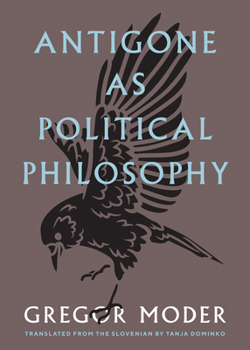Antigone as Political Philosophy
Select Format
Select Condition 
Book Overview
Offering a new perspective on Sophocles's Antigone as a model for reimagining humanity's future--and its end
Why read Antigone today? The premise of this accessible, essayistic work is that humanity finds itself at a crossroads, where it must reinvent itself or perish--a condition similar to Antigone's own. Rereading Antigone via Hegel's engagement with the text can help us understand what it means for a human age to come to an end: that is, to think of our age as an episode whose collapse is also an engine of historical change.
Gregor Moder argues that the task of humanity today may not be to defend the minimal remnants of our civilization but to say farewell to it--to give it a proper burial. As Moder explicates, the central problem of this foundational tragedy lies in the positions of brother and sister, man and woman, representing human and divine law and the institutions of the state and the family. Through a fresh reading of both Sophocles's play and Hegel's productive reworking of the Greek myth, Moder's analysis shows that sometimes the only way through deep social contradictions is in unraveling the framework that has constructed them.
Related Subjects
Philosophy




